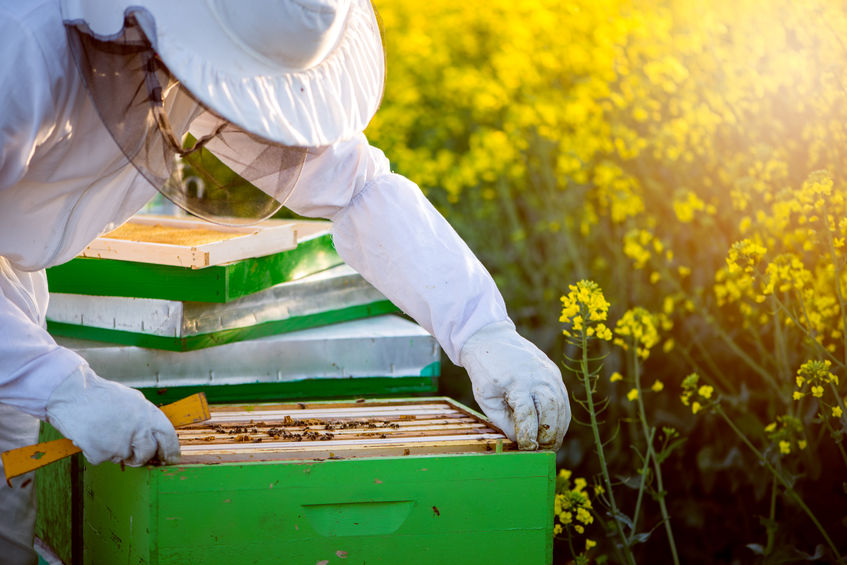Rhode Island Beekeeper Promoting Honey Bee Preservation
September 03, 2018
Bee Colony Collapse, Honey Bees
As many have likely heard, U.S. honey bees have been declining at an unprecedented rate for the last ten years, with a recent USDA report stating honey production was down almost ten percent in 2017 when compared to 2016. With beekeepers reporting 40 percent colony losses on average, it’s going to take large-scale changes as well as small efforts from local citizens to help correct the issue placed on honey bees by colony collapse disorder (CCD). An example of one such small but important effort to help the ailing pollinators comes from a 54-year-old beekeeper, Deadra Bonenfant, who created a “bee-yard” in the backyard of her Coventry, Rhode Island home.
The lifelong Rhode Islander thought of creating a bee farm back in 2014 while working in her garden. As Bonenfant put it, “I’ve always loved gardening, but I wasn’t growing any vegetables. So, I googled it and saw that it could be a lack of pollination. Then, I saw information about bee colony collapse…I did a lot of reading that winter, and I ordered my hive and the bees in the spring.” Bonenfant is now with the Rhode Island Beekeeper’s Association, running two backyard hives and producing 50 pounds of honey this year alone. “I started with just one hive, and it was a great learning experience,” she said.
Working with bees has taught Bonenfant a great deal about the insects, from how a hive is structured, how jobs within the hive are delegated, to their key differences from other insects. “People confuse honey bees for yellow jackets,” Bonenfant said. “Those are wasps, and they can sting you multiple times. A honey bee is not aggressive, but they will try to protect their home. For the most part, a honey bee is only going to sting you if they have to. If you saw one on a flower, they wouldn’t hurt you—they’re out working.”
Bonenfant has also learned how homeowners tend to call exterminators in order to remove bee swarms on their property. However, if the swarm is made up of honey bees, these same homeowners can simply call a beekeeper in their area, who would be more than happy to remove the swarm and get it out of their hair. “People love to get free bees, because they’re not cheap,” Bonenfant stated. “If you can capture a swarm, they’re looking for a home, and they’re stopped to rest. That’s the most docile you’ll ever find a cluster of bees. They don’t have a hive to protect, and if they lose their queen, they can always replace her.”
For non-beekeepers who want to help pollinators, there are plenty of methods available, with Bonenfant recommending that you cease your use of herbicides and pesticides on your plants. You could also plant bee-friendly plants on your property in order to provide a variety of food sources for them, such as dandelion, clover, asters, thyme, lavender, mint, rosemary, poppies, honey suckle, sunflowers, blackberries, marigolds, or raspberries. If you’re unsure of what to plant, try choosing plants native to your area.
Luckily for you, you don’t have to have your own bee farm to enjoy the great taste of honey. Our Manuka honey is like nothing you have ever tried before, with a rich, caramel taste that is absolutely delicious. To get your order started, click here, and remember, we offer FREE shipping on all orders of $150 or more!
Copyright: bernardbodo / 123RF Stock Photo


.jpg)



